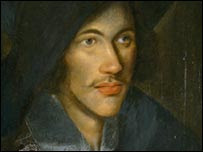Summary
The Jews are packed into cattle cars, there is almost no air to breathe, the heat is unbearable, there is no room to sit, and everyone is hungry and thirsty. Some begin to 'show 'affection' openly on the train as though they were alone, and others pretend not to notice. After days of travel in these inhuman conditions, the train arrives at the Czechoslovakian border, and the Jews realize that they are not simply being relocated. Madame Schächter, a middle-aged woman who is on the train with her ten-year- old son, soon cracks under the oppressive treatment to which the Jews are subjected. On the third night, she begins to scream that she sees a fire in the darkness outside the car.
The train eventually stops, they have reached Auschwitz. This name means nothing to them, and they bribe some locals to get news. With nightfall, Madame Schächter again wakes everyone with her screams, and again she is beaten into silence. The train moves slowly and at midnight passes into an area enclosed by barbed wire. Through the windows, everybody sees the chimneys of vast furnaces. There is an undefined, odor in the air—what they soon discover is the smell of burning human flesh. This concentration camp is Birkenau, the processing center for arrivals at Auschwitz.
Quote:
"Jews, look! Loook at the fire! Look at the flames!"-pg 28
Reaction:
This isn't the first mention from Madame Schächter of fire, no, this is the only time it makes sense. Before they were in the middle of no where and no fires in sight. BUt in the Cattle car the the Jews faced a kind of fire we have no idea of, the extreme heat of 80 bodies shoved in a space meant for nearly half that, and with a very minimum amount of water the Jews must have felt like they were burning. However this madness of Madame Schächter seems to be a bad omen foreshadowing the cremotoria.
Link ABOUT RAILCARS OF THE HOLOCAUST, from the HOlocaust Documentation and EDucation Center


